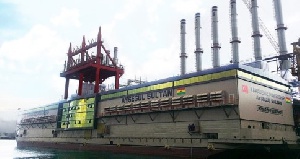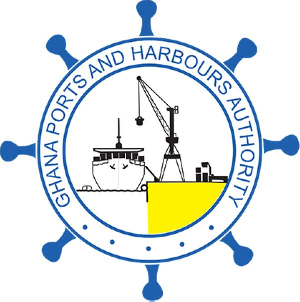Agreement on the Karpowership between the Government of Ghana and Karadeniz Aysegul Sultan, owners of the facility, is yet to be finalized, Kasapafmonline.com can report.
The ‘arrangement’ means the owners took a gamble to sail the Karpowership from Turkey which docked at the Tema Fishing Harbour on Saturday, after assurances from some government officials.
A Power Purchase Agreement (PPA) has been signed between the utility Electricity Company of Ghana (ECG) and Karpowership Ghana Company but the specifics, we are told, have not been finalized.
Per the PPA, owners of Karpowership are expected to provide two power barge facilities that will generate 450MW of power for ten years.
However, because the agreement has not been finalized, the parties are left with no choice than to settle on one facility, at least for now, until all negotiations are concluded.
Another key aspect of the deal is which of the parties bears the cost of fuel to power the turbines of the Karpowership.
Funds to purchase oil and/or gas have been a major burden on the Government of Ghana with the country said to be hugely indebted to the Independent Power Producers (IPPs).
The Karpowership, this website is told, will depend on Low Sulphur Heavy Fuel Oil (HFO) to generate electricity onto the national grid. It also has the ability to convert to Natural Gas.
The company, we are told, is ready to use Natural Gas to ensure further cost saving to Ghana if only suppliers are available.
Inside sources say Karpowership has assigned a dedicated shuttle vessel to ensure uninterrupted fuel supply from the offshore storage vessel to the onboard storage tanks of the powership. However, this arrangement will only materialize if the government commits itself to it.
The company, we are told, has invested in excess of US$30million in mobilization, site preparation, marine infrastructure works along with fuel supply, storage arrangements and grid interconnection, making it the largest Foreign Direct Investment (FDI) investment by a Turkish Company in Ghana.
General News of Monday, 30 November 2015
Source: kasapafmonline.com













